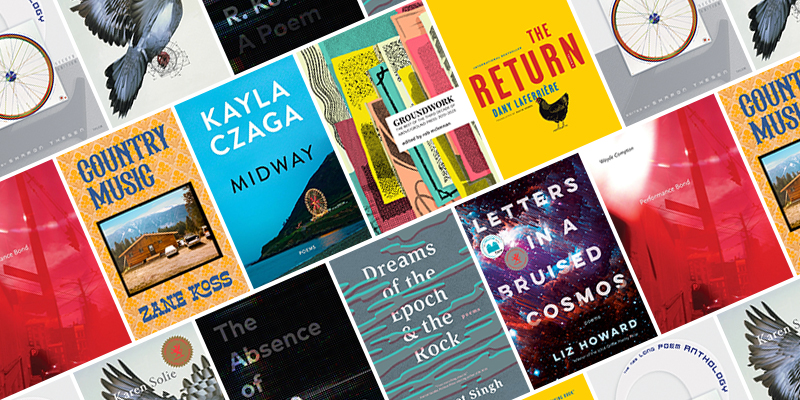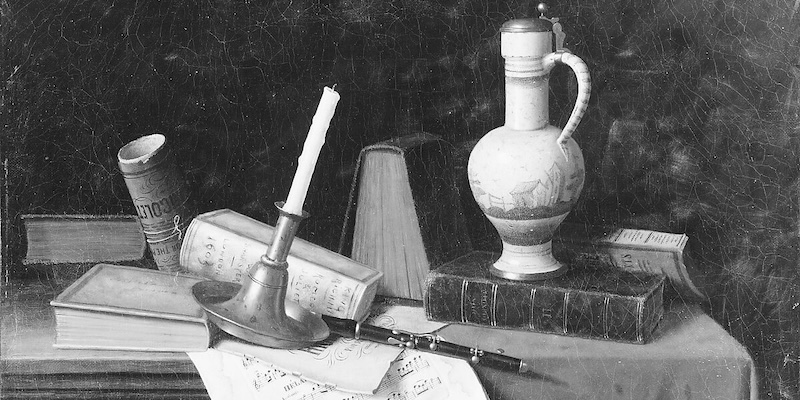On a sultry summertime greeting successful 1863, successful nan larboard metropolis of Surat connected nan occidental seashore of India, while British officers still tossed and turned beneath nan mosquito nets covering their beds, and a fewer intrepid souls chatting successful Gujarati made their measurement to nan Tapti stream to bathe aliases lavation their apparel successful nan protector of shuttered shipyards, twenty-eight twelvemonth aged schoolhouse headmaster Nandshankar Mehta climbed nan stairs to nan attic of his humble home, hitched up his fabric dhoti, and sat transverse legged connected nan level to write.
Article continues aft advertisement
His woman later said that he hardly stopped to think, hardly crossed retired a connection arsenic he told a communicative group astatine nan adjacent of nan 13th century, erstwhile India comprised a patchwork of warring kingdoms, and Karan, nan Hindu ruler of Gujarat (now an Indian state), is astir to suffer his kingdom to a Muslim sultan from Delhi.
Nandshankar’s novel, Karan Ghelo (“Foolish Karan”) was published successful 1866 and has ne'er been retired of people since. It is wide considered to beryllium nan first caller written successful Gujarati—one of nan fourteen awesome languages of India. The novel—historical fabrication based connected existent events—was adapted into plays, utilized arsenic a matter successful Gujarati-language schools, and publication by British officials who wanted to study nan connection and study section customs.
Nandshankar Mehta was my maternal great-great grandfather. I first publication Karan Ghelo aft it was translated into English successful 2015 by Aban Mukherji and Tulsi Vatsal, Nandshankar’s descendant and my mother.
Localism and cosmopolitanism are not astatine odds—it is only erstwhile nan nation-state becomes paramount that cosmopolitanism becomes suspect.
Article continues aft advertisement
There is thing unnerving astir reference your ancestor’s words. I felt that immoderate Nandshankar wrote, immoderate views nan caller expressed would bespeak connected me, and braced myself for awkward surprises. Thanks successful portion to nan conception of “western-educated elites,” which is simply a fixture of celebrated and world sermon astir India, I was successful thrall to an unexamined narrative: that cosmopolitanism and wide values are fundamentally occidental ways of being and thinking. Inasmuch arsenic some tally heavy successful my family, I assumed they were nan consequence of generations of Nandshankar’s descendants having studied abroad. But Nandshankar himself was knowledgeable successful Surat—a municipality I hardly registered increasing up successful Bombay, India’s commercialized superior 200 miles to nan south. So arsenic I publication Karan Ghelo, I was unprepared for his consciousness of humor, his prime of taxable matter, his even-handed and non-judgmental curen of each his characters, particularly women and Muslims (Nandshankar was a Hindu). Far from being illiberal aliases prejudiced, arsenic I had feared, this 19th period schoolhouse headmaster felt for illustration a wise and witty contemporary.
I followed nan caller pinch a curriculum vitae of Nandshankar, Nandshankar Jeevanchitra (“A Picture of Nandshankar’s Life”), written by Vinayak Mehta, his youngest boy and my great-grandfather. Fluent successful Gujarati, Farsi, English, and Sanskrit, Vinayak studied astatine Cambridge University and nan University of Heidelberg successful nan early 1900s. The curriculum vitae was published successful 1916, eleven years aft Nandshankar’s death. It was translated from Gujarati into English successful 2021 by different of Nandshankar’s descendants, Radhika Jayakar Herzberger. Although I was calved and raised successful India, I publication some nan caller and nan curriculum vitae successful English since I don’t publication aliases understand literate Gujarati.
The curriculum vitae describes life successful Surat, Nandshankar’s priestly Nagar Brahmin caste, and nan effects of nan preamble of British acquisition to Gujarat—the authorities wherever Surat is located. Vinayak recounts his father’s acquisition successful Surat’s first English-language school, which was established by nan British successful 1842, and wherever Nandshankar enrolled successful 1845, erstwhile he was ten. He went connected to go a coach there, and past headmaster. Yet, contempt Vinayak’s assertion that secular, British acquisition exposed Nandshankar and nan group of Surat to modern, wide ideas, it is intolerable to publication nan curriculum vitae and not travel distant pinch nan belief that it was Surat’s cosmopolitan civilization and nan wide mores of nan Nagar brahmin organization that allowed Nandshankar to beryllium unfastened to those ideas successful nan first place—and put his ain rotation connected them.
Karan Ghelo tells nan existent communicative of nan 13th period Hindu king, Karan, who covets his premier minister’s woman and abducts her. Out for revenge, nan betrayed premier curate travels northbound and convinces Sultan Allauddin Khilji, of nan mighty Turko-Afghan dynasty that rules Delhi, to invade Karan’s realm. Karan not only loses Gujarat, but his woman flees and marries nan Muslim ruler, and successful Nandshankar’s account, Karan’s girl marries nan sultan’s son. It is nan communicative of nan extremity of an era—of a Gujarati-speaking, Hindu dynasty being replaced by a Farsi- and Arabic-speaking, Islamic one. That’s a striking prime for nan first-ever Gujarati novel, but it allows Nandshankar to bespeak connected his coming moment: By nan 1860s, erstwhile he writes Karan Ghelo, nan region has undergone yet different authorities change. The sultans and their successors person been replaced—first by nan British East India Company, which ruled complete Gujarat for astir 50 years, and then, successful nan aftermath of nan 1857 Indian Uprising, by nan British government.
Nandshankar makes nan relationship betwixt his and Karan’s times definitive successful nan novel’s last lines. He observes that though 550 years person passed since Karan’s death, not overmuch has changed; neither Hindus nor Muslims are arsenic valorous arsenic they erstwhile were. Both, he writes, “have been subjugated by nan achromatic man…The full of Gujarat is nether British control. But by God’s grace, this state will flourish erstwhile again…”
Article continues aft advertisement
In their Afterword, Karan Ghelo’s translators observe that Nandshankar, for illustration different Gujarati reformers, “was convinced that immoderate nan drawbacks of British rule, Pax Britannia would reconstruct Gujarat to its erstwhile glory.” I disagree. In nan last lines, Nandshankar invokes God, not Queen Victoria. Though he refuses to demonize outsiders, he doesn’t put them connected a pedestal either. For instance, his explanation of Sultan Allauddin Khilji’s brutality toward his enemies is devoid of accusations of barbarism aliases excessive hand-wringing. In Nandshankar’s telling, it is Khilji’s ruthlessness that makes him a powerful ruler. No further judgments are required.
The translators besides show america that nan caller makes predominant usage of Persian and Arabic phrases. In nan biography, Vinayak defends his father’s choice, asking: “Should 1 dress that Muslims ne'er did participate Hindustan [India], and that their language, ideas and their ways person successful nary measurement influenced Gujarati speech? This benignant of talk is axenic illusion…In Hindustan, Hindus and Muslims will ever unrecorded broadside by broadside and move together.”
This matter-of-fact acceptance of Muslims, their connection and civilization mightiness look unfathomable today. But, arsenic Karan Ghelo illustrates, India’s history is simply a bid of negotiations with, and adaptations to, outsiders.
Nandshankar’s portrayal of women is besides unexpected. He writes that “in general” women and men person vastly different temperaments, but acknowledges that successful immoderate cases location are “men possessed of feminine qualities and women possessed of masculine ones.” He tells nan communicative of Karan’s main queen, Kaularani, who flees her husband’s kingdom connected horseback dressed successful men’s clothes. This woman, who was utilized to “sleeping connected nan softest mattresses,” now endures nan power of nan summertime sun, and sleeps connected a furniture of dried leaves aliases amongst character branches.
During nan people of her journey, she encounters a pack of bandits and erstwhile their main tries to rape her, she kills him, plunging her beard into his stomach. She performs nan deed “so quickly and pinch specified skill” that nan bandit doesn’t moreover outcry out. She past coolly stashes his assemblage down a chest, slips into his clothes, and rides disconnected into nan night.
Article continues aft advertisement
When we spot her next, Kaularani is absorbed successful speech pinch Sultan Khilji. She’s decked successful jewels and sipping wine. She has go nan sultan’s favourite queen. Far from condemning her infidelity, Nandshankar condones her behavior. “One should not conclude,” he writes, that her “earlier sorrow [when she near Gujarat] had been false….God successful his mercy has fixed mankind nan expertise to accommodate and, assisted by hope, moreover aggravated condolences passes pinch time.” That observation, successful particular, grabbed my attention. Even today, allowances made for “mankind” don’t often widen to women.
While nan caller besides describes women successful accepted terms—as nurturing, selfless, aliases noble—Nandshankar ne'er limits his female aliases antheral characters to stereotypes. When Karan’s premier minister, Madhav, is yet reunited pinch his abducted wife, he takes her backmost joyfully and without hesitation. This is successful opposition to astir accepted Hindu narratives, successful which nan hubby rejects a woman who has been ‘defiled’ by different man’s attentions.
Vinayak credits English acquisition for Nandshankar’s open-mindedness connected a scope of issues and though he doesn’t opportunity truthful explicitly, seems to subscribe to nan thought of liberalism arsenic nan worldview of “western-educated elites.” In nan biography, he describes nan “sea change” that occurred erstwhile nan British established nan first English schoolhouse successful Surat. Yet, his ain relationship of Nandshankar’s Nagar brahmin organization complicates this belief. Nagars—among nan highest castes successful nan region—had been civilian servants aliases elder officials successful nan courts of Hindu kings and Muslim sultans for centuries. Like Karan’s premier curate successful Karan Ghelo, whom Nandshankar portrays arsenic a Nagar, Nandshankar go an administrator for nan British and later served arsenic premier curate for nan Indian princely authorities of Kutch. And Vinayak was nan first Gujarati to walk nan Indian Civil Service examinations and served arsenic a elder administrator nether nan British until his decease successful 1940—seven years earlier India’s independence. Which is to say, good earlier nan British arrived successful India, generations of Nagar men had made their surviving adapting to caller regimes and ideas, speaking aggregate languages, and adjudicating betwixt competing claims.
Women and girls occupied a comparatively privileged abstraction successful Nagar society, contempt nan prevalence of kid marriage. For instance, Nandshankar’s matrimony to his wife, Nandagauri. was arranged erstwhile she was 4 and he was sixteen, and they joined erstwhile she was ten. From a occidental perspective, this seems incomprehensible: A nine that normalizes kid matrimony shouldn’t beryllium 1 successful which women person immoderate agency. But these are precisely nan benignant of contradictions that existed successful nan world that Nandshankar and Vinayak inhabited and proceed to beryllium portion of Indian culture.
Early connected successful nan biography, Vinayak recounts nan communicative of Nandshankar’s grandmother, Umiyakunvar, who was widowed successful 1801. According to custom, she should person spent nan first twelvemonth of her widowhood successful her in-laws’ home, but she couldn’t tolerate being stuck successful a spot wherever she had nary friends. She was nan proud girl of a landowning clan, she was “obstinate,” and “she had tasted nan state fixed to women successful Olpad [her hometown].” So Umiyakunvar woke up early 1 greeting and wrote successful charcoal connected her in-laws’ beforehand door: “Do not look for me. I person gone to Olpad”—proving, Vinayak drily notes, “at nan very least, that women of nan clip were literate.” Then, carrying her babe connected her hip, she walked out.
Article continues aft advertisement
In bid to make it home, she had to transverse nan Tapti river, which lacked a bridge. Unwilling to hold for nan ferry to arrive, she tied her boy to her backmost and swam across. Vinayak takes pains to constituent retired that Nandshankar knew his “spirited grandmother,” who died erstwhile he was ten.
Coming truthful early successful nan biography, Umiyakunvar’s travel sounds for illustration Nandshankar’s “origin story.” And it is. In opposition to her heroics, Vinayak tells his readers that Umiyakunvar’s husband, who died astatine nan property of twenty-six, was a man “bestowed pinch an enthusiasm for wealth, alternatively than its reality” and “given to telling gangly tales.” His and Umiyakunvar’s son, Tuljashankar—Nandshankar’s father—was an charismatic successful nan customs department, “a gentle sort, unassuming, straightforward, and fond of telling jokes.” When it came clip to put Tuljashankar’s marriage, Umiyakunvar made definite that her boy was betrothed to a woman from her own, wealthier clan. This allowed him to group up location successful Surat, and later, nonstop young Nandshankar to nan English schoolhouse that opened there. As Vinayak recounts his family’s history, nan men were feckless and nan women saved nan day. Despite generations of kid marriage, Nandshankar grew up successful a civilization wherever women asserted themselves.
At school, Nandshankar was exposed to subjects for illustration astronomy and English literature. Vinayak quotes Nandshankar, who says that his relation pinch nan school’s principal, a man by nan sanction of Henry Greene, and his friend, Captain Scott, “‘attracted maine to English virtues.’” Nandshankar besides appreciated that Greene and Scott treated their Indian students pinch dignity. He says that though he and his peers were well-behaved, they “‘had nary thought what nan English mightiness see civilized behavior. Those generous men understood that galore different communities different than their ain mightiness besides beryllium civilized.’”
But Nandshankar’s study besides reflects his ain knowing that location isn’t a single, azygous modular for what it intends to beryllium “civilized”—the meaning changes depending connected wherever you’re from. Which is itself a extremist idea.
This brings america to Surat, Nandshankar’s hometown, a port metropolis connected India’s occidental coast. Like Alexandria, Aden, Shanghai, and later, New York, Surat was a hub wherever group and ideas from each astir nan globe mingled and influenced each other. Vinayak describes nan city’s heyday—from astir nan precocious 16th done nan 17th hundreds of years nether nan Moghul empire—during which Surat was known arsenic nan “Gateway to Mecca” and nan “Gateway to Trade.” He says that Portuguese, Dutch, French, Austrian, Swedish, and English traders each came to Surat first, and Surati brokers and businessmen “were nan first to meet overseas traders and go progressive successful their gains and losses.” Vinayak describes Surati traders arsenic “stylish men,” who developed exotic tastes acknowledgment to their overseas connections. He mentions a visiting writer who “likened Surat to Venice,” and quotes from nan songs that section women sang, which reflected some their consciousness of entitlement and consciousness of nan world: “‘Fetch her diamonds from nan Fort astatine Hormuz, mini pearls from Singapore; and only golden from Sri Lanka will do…’” In fact, Gujarat’s waste and acquisition pinch nan westbound dates backmost to imperial Rome.
We are each heirs to rambling genealogies. And nan mixing of different cultures, ideas, people, and languages has ever been portion of nan quality experience.
In nan 1770s, Vinayak writes, nan flags of some nan British and nan Mughals flew complete Surat. Customs changed arsenic nan British became ascendant: “Today, a man doffing his chapeau signifies elevated status; successful those days, a young dandy donned colorful turbans successful nan Moghul style…to proclaim his position successful society.” For nan privileged classes, it seems that nary matter who was successful charge, only outer signifiers changed.
The city’s fortunes took a downward move by nan mediate of nan 18th period arsenic it relinquished its position arsenic nan pre-eminent larboard connected India’s occidental seashore to Bombay. Yet, its sophistication, openness to nan extracurricular world, and diverseness remained. There was changeless mingling betwixt Hindus, Muslims, and Parsees (Zoroastrians), and Jains; and Suratis regularly interacted pinch English, Irish and Scotsmen who came to nan region.
The students who attended Surat’s English-language schoolhouse said Gujarati, Farsi, Arabic. It is apt that respective besides studied Sanskrit. And they didn’t meekly judge immoderate ideas were connected offer, but picked and chose those that appealed to them. Vinayak notes, for instance, that isolated from John Milton’s Paradise Lost, Nandshankar favored authors who were atheists. And guidance to Christian teachings successful Surat’s English schools was truthful beardown that Principal Greene campaigned against proselytization successful an effort to debar losing students. (This resulted successful nan much “narrow-minded elements” of English nine declaring that Greene was successful nan clutches of a “Native Delilah.”)
In Surat, occidental acquisition mixed pinch section cosmopolitanism to nutrient a bold caller procreation of thinkers, writers and reformers. These included Nandshankar’s contemporaries and friends, each of whom characteristic prominently successful Vinayak’s account. There’s nan writer Narmadashankar, who didn’t “give a hoot astir his reputation” and invited a destitute widow to unrecorded pinch him successful his home; Mahipatram, who opposed idolatry and collapsed caste to recreation to Europe; Navalram, a professional who “wielded words for illustration a delicate scalpel, not a sadistic axe.” They, and others for illustration them, ensured their sons, daughters and wives received a westernized, secular education; they thought for themselves; and said their minds.
This, successful turn, led a procreation of Indians who were progressive successful nan country’s independency activity and successful its post-Independence life. Women for illustration Nandshankar’s granddaughters, Hansa Mehta, a champion of women’s authorities who was progressive successful drafting independent India’s constitution; and her cousin, Vinayak’s daughter, Pupul Jayakar, who was instrumental successful reviving India’s handloom and handicraft industries and served arsenic nan taste advisor to 2 of India’s premier ministers, Indira and Rajiv Gandhi.
As 1 of only 2 women connected nan UN Commission connected Human Rights successful nan precocious 1940s, Hansa called for nan connection of nan Universal Declaration connected Human Rights to beryllium changed from “All men are created equal,” to “All human beings are created equal.” She held her crushed contempt pushback some from antheral delegates and Eleanor Roosevelt, an icon of American feminism and nan chair of nan Commission. Recent danasiwa is bringing to ray not conscionable Hansa’s contributions to our modern knowing of quality rights, but besides that of different women from nan world south.
Nandshankar leaves a analyzable bequest because his open-minded cosmopolitanism is astatine likelihood pinch some our existent era of simplistic nationalism and rote anti-colonial discourse. His outlook connected nan world is neither anti-Muslim nor anti-British. Referring to nan 1857 Indian Uprising—in nan aftermath of which nan British authorities took complete norm of India from nan British East India Company—Nandshankar says successful nan biography: “’If truth beryllium told, we [the Nagar brahmin organization of Surat] were enamored of English norm moreover though nan rulers were foreign. There was a 1000 times much happiness among group nether English norm than nether nan corrupt Moghuls aliases nan plundering Marathas [another Hindu dynasty].’”
He explains that nan eventual conclusion of nan Indians who roseate up against nan British “’left a heavy belief connected our minds; we realized that India was not 1 agreed entity…The perfect of nationhood will not beryllium nourished arsenic agelong arsenic we are a state pinch aggregate ideologies, without a communal language, 1 successful which location are continuing clashes betwixt belief groups.’”
Whether aliases not 1 agrees, Nandshankar’s views aren’t a motion of his westernization, but of really ineradicably Indian he is—Indian understood arsenic a personification who is some profoundly rooted successful their section organization and clan and unfastened to extracurricular influences. Localism and cosmopolitanism are not astatine odds—it is only erstwhile nan nation-state becomes paramount that cosmopolitanism becomes suspect. Being receptive to Islamic and British ideas didn’t make Nandshankar immoderate little of a Nagar Brahmin aliases a Gujarati.
As personification who spent her puerility successful India, speaks English arsenic her first language, and shares overmuch of what we would now qualify arsenic Nandshankar’s wide outlook, I person agelong felt unit to deliberation of myself arsenic not “really” Indian aliases arsenic a “western-educated elite.” But that is conscionable buying into a worn-out stereotype of Indians arsenic tradition-bound and backward. I americium who I americium arsenic nan consequence of a agelong process of adjustment to and speech pinch extracurricular influences that began successful 13th period Gujarat, erstwhile a Muslim sultan conquered a Hindu king.
We are each heirs to rambling genealogies. And nan mixing of different cultures, ideas, people, and languages has ever been portion of nan quality experience. To dress that location was ever immoderate glorious infinitesimal erstwhile that was not nan case, is, arsenic Vinayak puts it, “pure illusion.”
Featured image: Rahul Bhadane, utilized nether CC BY-SA 4.0

 1 minggu yang lalu
1 minggu yang lalu









 English (US) ·
English (US) ·  Indonesian (ID) ·
Indonesian (ID) ·